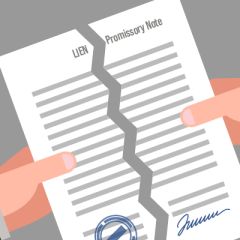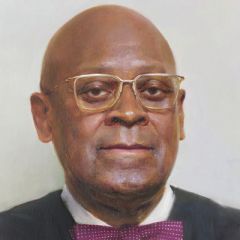In 2024, the Second District of the Illinois Appellate Court clarified the process to judicially remove liens from a decedent’s real estate in probate proceedings, explain Fredric Bryan Lesser and Jeffrey P. O’Kelley in their February 2026 Illinois Bar Journal article, “Lien Over.” That process and the decision explaining it, are not without controversy, Lesser and O’Kelly continue. In fact, in response to the Second District’s decision, the Illinois legislature is now considering amending the 138-year-old statute that empowers the probate court to remove liens.
Illinois Bar Journal
-
February 17, 2026 | Practice News

-
February 9, 2026 | Practice News

The apex doctrine is a common-law limitation on deposing corporate executives where the executive has limited personal knowledge of the relevant issues or where the same information can be obtained from other sources, notes Caroline A. Veniero in her February Illinois Bar Journal article, “Deposing the Top Dog.” But as handy as the doctrine may be for top execs, it is far from absolute.
-
February 2, 2026 | Practice News

Last December, Illinois attorneys and judges gathered in Chicago to reflect on the pressure the Trump administration has placed on law firms during his second term. They met as part of a continuing legal education program sponsored by the ISBA titled, “The Legal Profession: Caretakers of Democracy,” during the ISBA/Illinois Judges Association Joint Midyear Meeting on Dec. 9 at the JW Marriott Chicago. Panelists discussed President Trump’s executive orders directed at law firms, the need to rebuild public trust in the legal system, and tips for public appearances as legal professionals.
-
January 20, 2026 | Practice News

The U.S. District Court for the Northern District of Illinois has become an assembly line for Schedule A lawsuits, in which the complaint’s first exhibit names a list of the defendants—mostly small, Chinese-based sellers on platforms like Amazon, eBay, and Alibaba. Although not a class action, Schedule A complaints amass online storefronts to consolidate battles against intellectual property theft.
-
January 12, 2026 | Practice News

“Compatible rules of evidence would certainly make life easier for lawyers who try cases in both federal and state courts,” writes Gino L.
-
January 5, 2026 | Practice News

The Illinois Bar Journal’s January cover story, “Help Is on the Way,” dives deep into the ARDC’s new guide for attorneys interested in implementing artificial intelligence in their practice. The IBJ interviews the guide’s author as well as other attorneys who see the fast-evolving technology as a key tool for attorneys in the new year. That said, the IBJ also explores the caveats the ARDC’s guide lays out for using AI ethically and accurately.
Read the "Help Is on the Way" in the January Illinois Bar Journal.
-
December 15, 2025 | Practice News

Still looking for holiday gift ideas for colleagues? Check out the Illinois Bar Journal’s “Holiday Gift Guide 2025,” written by Pointers From Practice HQ columnists Jeffrey S. Krause and Jeffrey S. Schoenberger. The list includes productivity products, apps, gadgets, and other items that will bring value, efficiency, and perhaps even a bit of fun to your working day.
-
December 8, 2025 | Practice News

The need to obtain school student records may arise in everything from dissolution of marriage proceedings to general civil litigation and administrative proceedings, such as grievance proceedings involving school staff, observes Christian Ketter in his December Illinois Bar Journal article, “What’s in the File?” But Ketter notes the Illinois School Student Records Act ensures that a student’s individually identifiable information remains insulated from those contexts.
-
December 1, 2025 | Practice News

New Illinois Supreme Court Chief Justice P. Scott Neville, Jr., grew up in the Chicago Bronzeville neighborhood under challenging circumstances. As recounted in “Ready To Serve,” the Illinois Bar Journal’s December profile of the chief justice, those years “were challenging for his family and especially his mother, a schoolteacher,” Chief Justice Neville says. “But I maintain that those very difficult times made me the kind of person I am. I often say I grew up on the rough side of the mountain,” he says. “But it is pressure that turns coal into diamonds.
-
November 24, 2025 | Practice News

“Lawyers often regard procedural history as a formality and as something to endure, like the seat-belt announcement on an airplane,” writes Justice Michael B.

